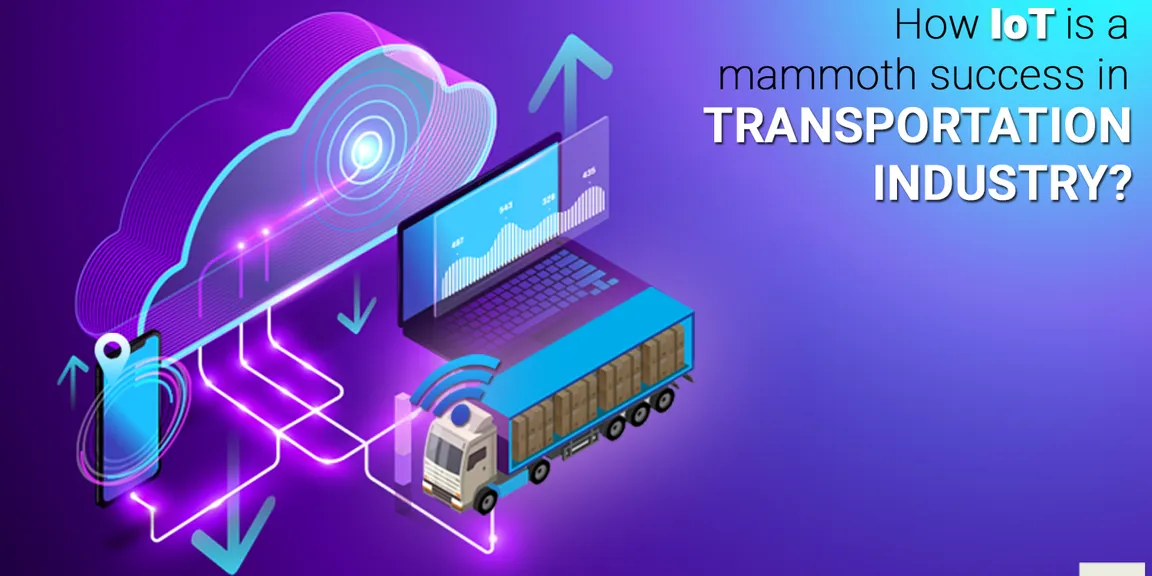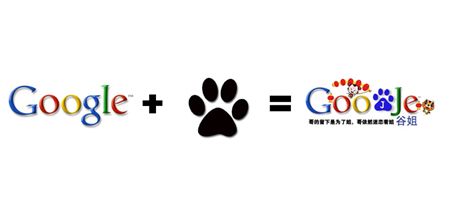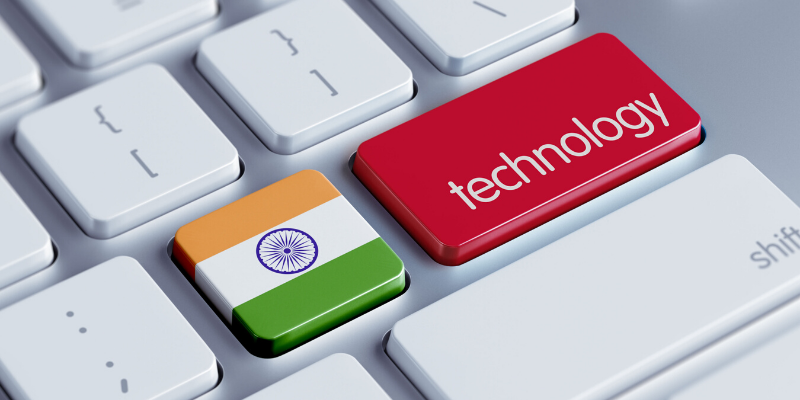

How IoT is a mammoth success in Transportation Industry?
A lot has been known in recent years about the challenges faced by truck drivers in the United States. Driving truck over the road has been very much isolating.
A lot has been known in recent years about the challenges faced by truck drivers in the United States. Driving truck over the road has been very much isolating. In fact, wages for many truckers have become stagnant because of an improper tracking system and lack of communication. Truck driving being tough remains a very important job for the people of the US. Statistics show that trucking has become groundbreaker for the economic well-being of the global economy.

More trucks have started moving and freight rates have increased over the period of time indicating that consumers have been spending more and retailers and manufacturers are adding more to their inventories. Surely, it would not have been a coincidence when overall employment rate and trucking industry have been growing at the highest level in the last 17 years. According to FMCSA, there were about 4,93,730 trucking companies operating in the United States in the year 2016. But what remains the same is that many of America’s small business owners are truckers.
And as trucks travel through interstate highways, tracking them real-time is very much important. IoT in Transportation industry has made everything connected by enabling sensors to collect, send and receive information via cloud-based infrastructure. With Industrial 4.0, the trucking industry has become a broader part of the Internet of Things and thus giving better outcomes.
With the recent 2015 DHL and Cisco Internet of Things Report, IoT in logistics is expected to generate $1.9 trillion in value which is part of an overall $8 trillion in IoT value generated globally. Not only this, with the connected things in real-time, IoT devices have unlocked more opportunities and greater operational efficiencies.
IoT has made the tracing and tracking more accurate, faster and secured while the data analytics helps in predictive analysis and scheduled maintenance alerts.
Today, the Internet of Things has become a very important node in the trucking, making a better two-way communication between the driver and the operation manager. With the help of IoT in Transportation, the operating cost has been cut and greater visibility to trucking companies and shippers have been provided.
In fact, drivers now love their job and the fact that IoT trucks have helped them to do their jobs in a faster and safer way. The Web and Mobile App allows drivers and managers to access their trucking activity via their smartphones and tablets. No matter where the managers are, they can track their fleets and receive the emergency alerts much earlier.
Beyond connected trucks, IoT has brought a new evolution in the Logistics by connecting the entire supply chain with one another. Pallets have been linked to trailers, containers can talk to trucks, and fleets have been connected with one another. Apart from this, sensors being used in trailers tell about the real-time weight of the trailer and detailed insights about the goods being carried. The IoT data collected from embedded sensors is populated on a central dashboard after analyzing it thoroughly and hence sending real-time alerts. This visibility henceforth increases fleet efficiency, reduces deadhead miles, improves fuel economy and makes the fleet business owners more relaxed.
Key features behind the mammoth success of IoT in Transportation:
GPS tracking, Smart Sensors and other IoT devices in the transportation industry have unlocked various potential features. Let’s take a deep dive into how IoT has helped the trucking and transportation industry to unlock these potential features and henceforth making it a greater part of the US economy:
- IoT data received from sensors is analyzed very precisely with the help of smart devices. Sensors used to collect, send and receive data. After a deep analysis, drivers are sent real-time alerts to avoid any threats and hazardous situation.
- Because tracking trucks in real-time have become a reality, potential problems can be addressed well before in advance like vehicle breakdown. Getting an alert prior to a situation reduces the repairing cost thus making preventive maintenance cheaper and affordable than a major replacement.
- IoT sensors have made Cargo Tempering more efficient and secured. It tells about whether the cargo has been opened throughout the journey or whether the tampering has occurred. Better monitoring of the pharmaceutical or hygienic products has been possible by real-time monitoring of them.
- As long as one is updated, one can sustain in the market. In the same way, as long as one gets the real-time information about the fleets, one can reap more business benefits to make their business successful. IoT has slowly and gradually changed the transportation industry, thus paving a better way for industrialists. The adopted technology has improved the operational cost, maintenance cost, real-time accident response, and fuel consumption. With real-time tracking, implementing intelligent decisions have become a necessity now. The Automated Fleet management solution has connected vehicles and monitor driver activities and their behavior. This helps to know exactly where vehicles and drivers are and identify any problem much sooner than any risk mitigates further.
- IoT allows to know the real-time location of every truck in their fleet and tells when they will arrive at their destination. They tell about the optimal route based on the traffic and weather conditions. And drivers can be re-routed then in real-time.
- During the complete journey, the real-time condition of fleets can be tracked. Cargos being sensitive to a particular feature, for example, medical cargo needs to be maintained at a specific temperature during the transportation. IoT sensors send alerts to drivers to resolve the problems as soon as possible.
- Cargo embedded sensors make loading and unloading easier and faster. Drivers are provided with smartphones and tablets to be in continuous communication with their headquarters who track the changes being done in loading and unloading.






